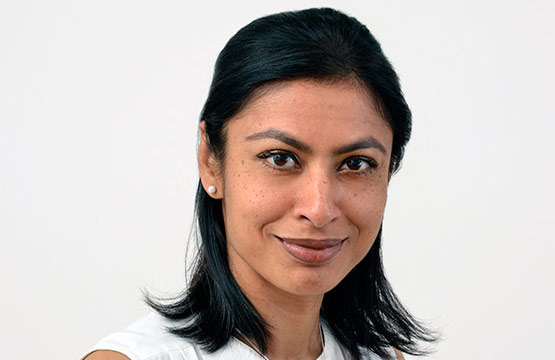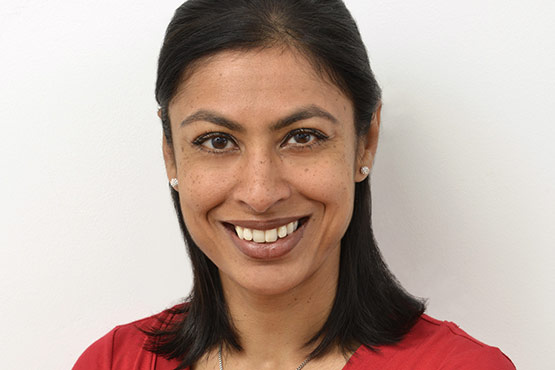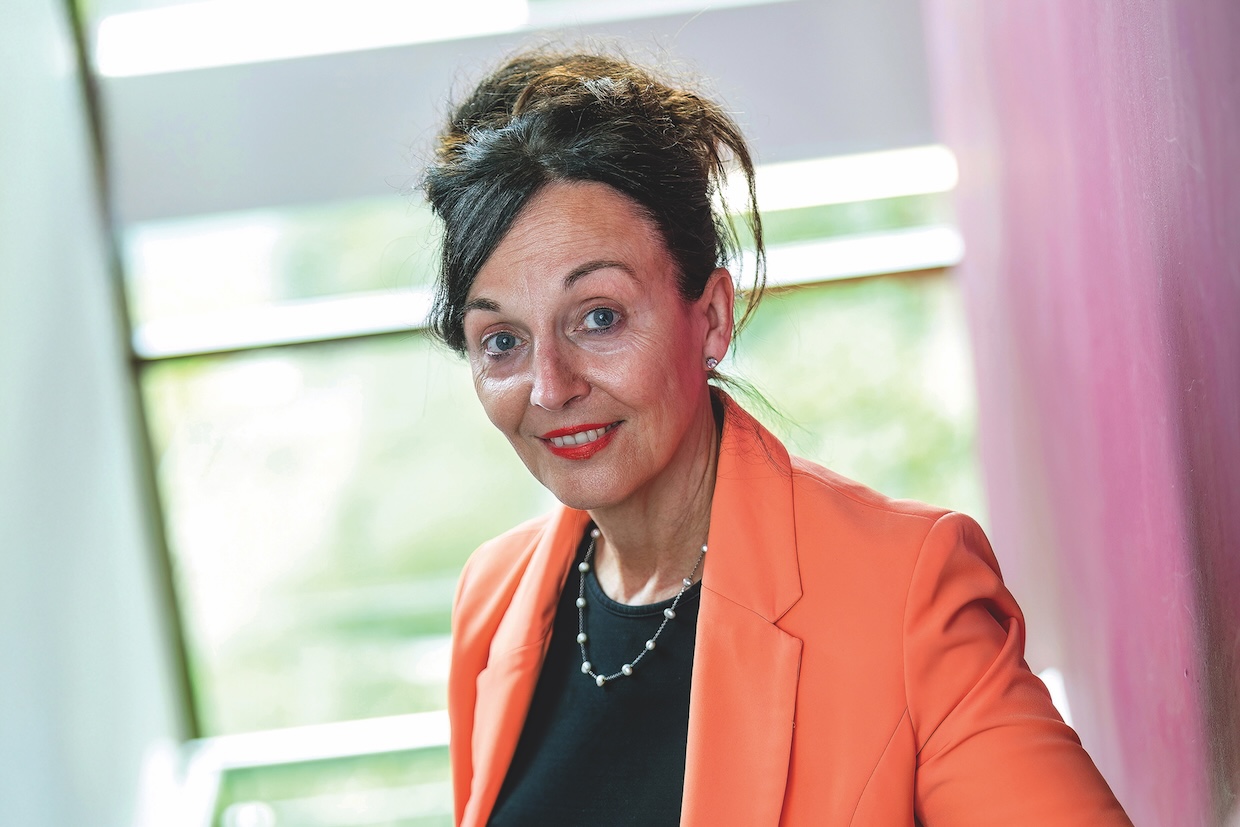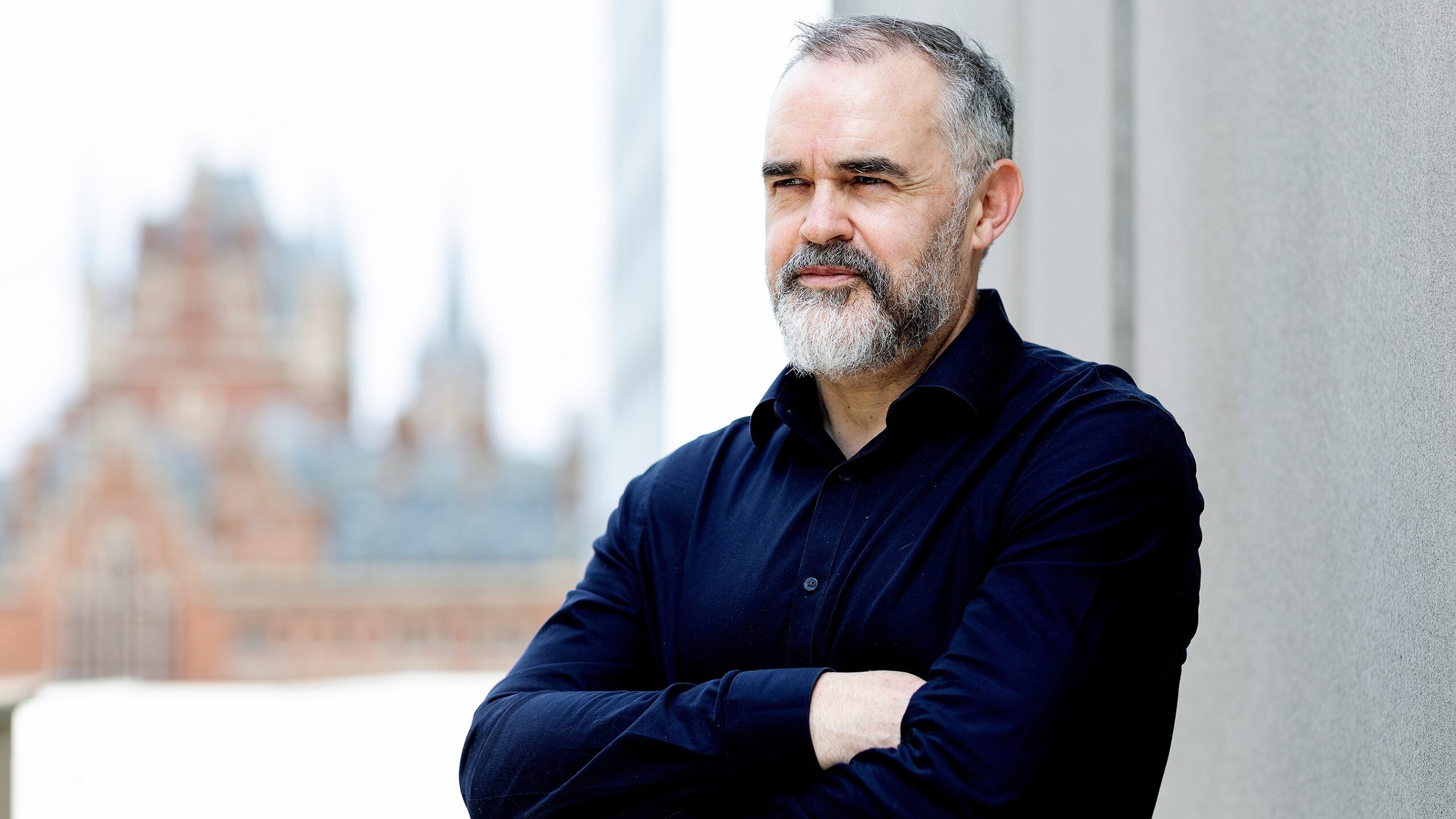COVID: The perfect storm for BAME communities

Black and minority ethnic communities have borne the brunt of the pandemic. Racial equality expert and member of Independent SAGE, Zubaida Haque, talks about what’s wrong and how NHS managers and leaders can put it right.
“The message of this entire pandemic is: wealth trumps everything. The more advantaged you are, the luckier you are in this pandemic,” says Zubaida Haque. “People from the poorest economic backgrounds have been hit hardest.” In particular, ethnic minorities have faced a “perfect storm”, she adds: socioeconomic factors have combined with structural racism to raise infection and death rates. “We just have to accept the enormity of the role that racism plays in exposing BME people to this virus,” she says.
There’s clearly a problem. According to the Intensive Care National Audit and Research Centre, to the end of August some 34% of critically ill coronavirus patients were from BME groups – who comprise 14% of the population. And the Institute for Fiscal Studies, after adjusting for age and location, found that death rates for BME groups were up to 3.7 times greater than among white people. Hence Haque’s status as a member of Independent SAGE: the group of scientists formed in counterpoint to the government’s own SAGE coronavirus advisory panel, chaired by former government chief scientific adviser Sir David King.
During her career as a researcher – which included stints in the communities, energy and justice departments, plus leadership roles in race equality think tank the Runnymede Trust – Haque has specialised in ethnicity and discrimination issues. Now she’s championing the need to consider race during the pandemic, addressing a common omission in policymaking. Government officials often display “a lack of understanding – a sort of institutional colour-blindness – to the impact of their policies on black and ethnic minority groups,” she comments.
Hostile environment
Take the government’s ‘hostile environment’ policies: it was a “fundamental mistake” to insist that health and education service providers share data with the Home Office, because the result is that migrants without “clear citizenship status are less likely to seek health services.” And in a pandemic, that creates risk not just for the migrants, but also for the communities in which they live.
Some researchers have suggested that lower vitamin D rates among BME people make them more susceptible to coronavirus. But the evidence is inconclusive, replies Haque: in her view, BME communities’ vulnerability to COVID-19 is largely explained by their higher rates of poverty.
In common with other deprived groups, BME people suffer higher rates of long-term conditions such as diabetes, obesity and asthma – all of which make a dose of coronavirus more dangerous. And low-paid workers have felt the need to keep earning throughout the pandemic, often travelling by tube – “a perfect petri dish of coronavirus”, Haque says – to work in keyworker and public-facing roles. So their families face a daily risk of infection, while higher rates of overcrowding make it difficult to shield vulnerable people or isolate those showing symptoms.
The government’s failure to support its contact-tracing system with effective support for people asked to isolate, Haque believes, is both undermining the system’s effectiveness, and leaving poor people at risk. “There’s no point telling people to self-isolate if they can’t afford to,” she says. “The government should have requisitioned hotels, bed-and-breakfasts, and provided places where people could leave their homes to self-isolate.”
Under-protected and over-exposed
BME people’s heightened risk of poverty is, Haque argues, itself a product of structural racism: the consequence of many millions of individual actions, each of which slightly disadvantages an individual or group. “Systemic institutional racism”, she says, surfaces in “those little decisions that clinicians or housing officers make: all those factors that eventually mean that BME people are under-protected and over-exposed” during the pandemic.
These dangers are particularly acute within health services, where everyday decisions such as how to distribute PPE or which nurses should staff the ‘hot’ COVID-19 ward can have huge consequences. “Racial discrimination in the NHS has been around forever, and it’s not really being addressed,” says Haque, citing pay disparities and evidence that BME staff are more likely to enter formal disciplinary proceedings.
During a pandemic, this problem can have “brutal” consequences: analysis by the Health Service Journal and the Guardian in the early months of the pandemic, for example, found that around 60% of NHS staff fatalities were people from BME backgrounds, who make up 20% of the workforce (45% in London). This partly reflects the fact that BME staff are concentrated in frontline and lower-paid roles, where they’re more exposed to infection: just 8.4% of trust board members are BME; in London, 65% of adult social care workers are ethnic minority; and over half of BME nurses are in the lowest pay band. But these statistics, notes Haque, are themselves a consequence of structural racism within appointments, performance management and promotion systems.
Few NHS organisations or managers are consciously racist, she says, but many carry “stereotypes and subtle biases that can have a cumulative and very disruptive effect” – leading to both decisions that unwittingly disadvantage BME people, and a failure to spot those negative outcomes.
More than 20 years ago, the MacPherson report into the racist murder of Stephen Lawrence “talked about institutional racism – about the unintended consequences of policies and practices – and at the time, the focus was on the Met Police,” Haque continues. “But what people don’t realise about the MacPherson report was that it was talking about all public services. So I would say to NHS managers: ‘Don’t think about this as whether you’re racist or not racist. Think about whether you have policies, practices, procedures and services that are – wittingly or unwittingly – discriminating against communities.’”
This is particularly important during the pandemic, when practices that would in normal times damage a BAME medic’s career or wellbeing could instead result in their death. In an April survey by the Royal College of Nursing, notes Haque, only 43% of BAME nurses reported that they were receiving adequate facial PPE, compared with 66% of their white counterparts. “If you can’t even get basic protection from a virus when you’re on the frontline, how are you going to address issues around disparities in performance assessments, or disciplinary proceedings, or pay?” All these problems have the same root cause, she believes: structural racism.
Diversity doesn’t mean equality
So what are the solutions? Improving BAME representation in senior roles and strengthening managers’ training can help, Haque believes – but it’s not a panacea. “Diversity doesn’t necessarily mean equality,” she says: it would be naïve to think that “a bit of training around BME groups will be enough to address systemic, institutional racism.” The complex reasons why, for example, black women are five times more likely to die in childbirth than their white peers “are systemic issues, not diversity issues. You need more than training!”
 “How much more do you need before you act? It’s heart-breaking to hear about another review, another body, when we know the solutions lie much more across the system.”
“How much more do you need before you act? It’s heart-breaking to hear about another review, another body, when we know the solutions lie much more across the system.”
So Haque urges senior leaders to consult much more carefully on their policies and practices, while “asking NHS professionals how those policies affect them.” Such consultations are weak across swathes of the public sector: as a civil servant, Haque was shocked that “so many policies and programmes were implemented and rolled out top-down, without the basics of asking the very people those policies affect,” she recalls. “You’d be surprised at how little of it is done. And it’s got a lot worse.”
As policies are designed and introduced, she argues, civil service and NHS bodies should always carry out an equality impact assessment to assess whether they “are having the intended effect on everyone, or whether some communities are much more likely to be worse off.” These assessments, Haque believes, are key to addressing the untested assumptions and “colour-blindness” that often weaken policy design.
Finally, she says, health and care employers must reshape performance management systems. Current processes often disadvantage BAME staff: she cites evidence from education services, where BAME teachers – seen as “being able to handle troublesome kids better” – were given difficult classes, damaging their assessed performance on exam results. And managers’ own appraisals and career prospects, she says, “need to be linked to the recruitment, retention and promotion of BME employees.”
“It is the middle and line managers who tend to be the bottlenecks, the barriers around racial discrimination,” she says. “You tend to have the people at the top saying the right thing, but that message isn’t being trickled down. And even if it is trickled down, there are no consequences for poor performance: no consequences if you don’t promote your BME staff, or don’t pay them well, or don’t give them PPE.”
Review after review
Asked whether the NHS Confederation’s new Race and Health Observatory might help drive progress on the issue, Haque is cautious. “I always worry about separate bodies set up to deal with issues of racial discrimination,” she says. “Unless that body has powers not only to implement policies, but also to enforce them – to carry out a robust assessment, and to penalise NHS institutions for not carrying out those policies – then I’m not entirely sure why that body exists, because that’s not how you address racial discrimination.”
“There’s been review after review in the NHS. How much more do you need before you act?” she adds. “It’s heart-breaking to hear about another review, another body, when we know the solutions lie much more across the system.”
These issues are only going to grow more pressing as we move through the pandemic, which exacerbates existing inequalities in so many ways. The UK’s return to lockdown will itself have hurt BAME communities more than other groups – and this lockdown was, says Haque, a result of the government’s apparent inability to build and deliver a sensible strategy. “It’s because they spectacularly failed with the privately-led and centralised test-and-tracing system that they had to resort to lockdown,” she says, arguing that ministers seem to repeatedly “wait until crisis point, when they have no other choice” but to impose tight movement controls.
As the government moves to mass vaccination, notes Haque, its Joint Committee on Vaccination and Immunisation is advising it on how to target the most vulnerable groups – and it already knows that BME people are two or three times as likely to be hospitalised or killed by coronavirus. “There are questions around the prioritisation of that vaccine, and who it should go to,” she says. “And at the moment, it seems, they are avoiding the question a little bit.”
The pandemic has thrown up many questions the treatment of BME people, vividly illustrating the dangers that come with being black or brown in the UK. But it’s not hard to find the answers, says Zubaida Haque: for health policymakers and organisational leaders alike, the keys lie in proper consultation and assessment as policies are developed and deployed, plus the reshaping of performance management systems so leaders are required to address discriminatory outcomes.
“This is in our control: we can minimise the risk for black and minority ethnic groups,” she concludes. “People have to understand that this isn’t a ‘diversity issue’. Racism is a matter of life and death.”
Related News
-

Daniel Elkeles: “There’s a lot of green shoots here—the NHS is in a much better place”
As NHS Providers annual conference gets underway in Manchester, we speak to chief executive Daniel Elkeles about next year’s merger with the NHS Confederation and the future for NHS trusts in England. He tells Alison Moore that providers are “well placed” to deliver the Ten-Year Plan—but warns an unhappy workforce and a lack of investment could throw big spanners in the works.
-

Angela Hillery: “Nobody can do this on their own”
Angela Hillery, chief executive of community trusts in Northamptonshire and Leicestershire, is one of England most influential NHS leaders and a pioneer of collaborative working. She talks to Craig Ryan about why integrating services offers the best chance of overcoming a hostile environment and turning the NHS around.
-

We’ve given NHS management a home – we care for it and campaign for it
MiP is 20 years old this summer and its chief executive, Jon Restell, has been there since the beginning. He reflects on the union’s past, present and future in conversation with Healthcare Manager editor Craig Ryan.